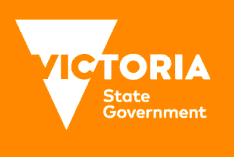
My name is Robyn and this is my tenth, and final, year of cancer treatment.
I was told that I was one of the lucky ones because my breast cancer was found so early. I was told that the small size of the tumour would mean that I would only need surgery followed by radiation treatment.
The reality was quite different.
I had a lumpectomy and breast augmentation. This was the 'silver lining'. I went from a DD to a C. The surgeon came to see me on day 5 of my hospital stay and was sorry to say that following the pathology results and actual size of the tumour removed, my treatment was going to be far more involved.
Following the surgery, I went straight into three months of chemotherapy, followed by 6 weeks of daily (except the weekend) radiation treatments. As my cancer was oestrogen positive, I then had to take Tamoxifen – for 10 years.
I was 43 years old and thrust into menopause.
No one really tells you what chemotherapy and radiation therapy are like. They don’t warn you about the horrible constipation, the tiredness and the loss of ALL body hair. They don’t warn you of the post-operative cysts forming in the scar tissue, or the horrific burns.
I felt very alone during the active treatment phase. My family and friends applauded my 'braveness'. But that wasn’t it at all. No one wanted to hear what I was going through. As soon as my cancer came into the conversation, their face would shift. The energy of grief emerged and the conversation changed to their experience with cancer. It became their grief about their mother, father, friend, grandparent, who had died of cancer.
I was simply a reminder of that grief. I learned to keep my comments as sterile and non-triggering as possible.
For the last 10 years, I had a mammogram and ultrasound check-up, followed by an appointment with my breast surgeon. Every year, I worried about what those results would show.
I was diagnosed with early-stage oestrogen positive breast cancer. It is not one of the serious ones, so I got little in the way of support or after care. If I wanted to talk about anything, or get some answers to the million questions, I was the one that instigated it.
In this, my final year of treatment, I feel ready to share my story in the hopes that it will help women that find themselves in a similar situation. It is with much gratitude to Counterpart for providing this opportunity.
Would you like to share your story? Send an email to [email protected]




